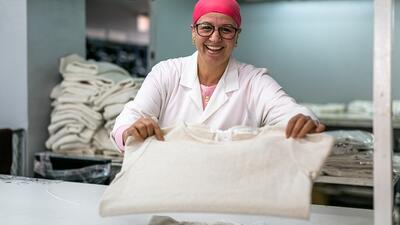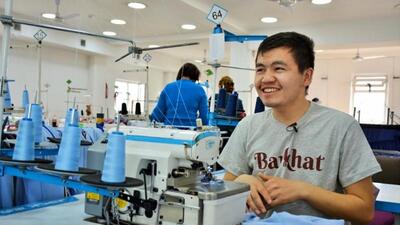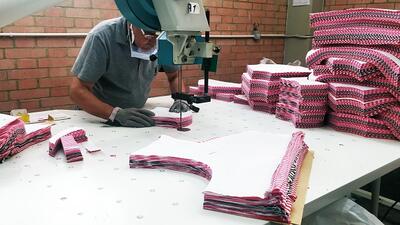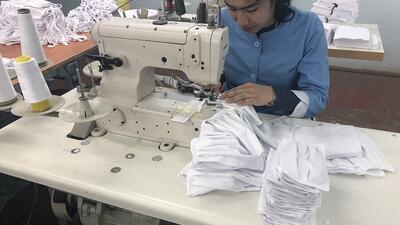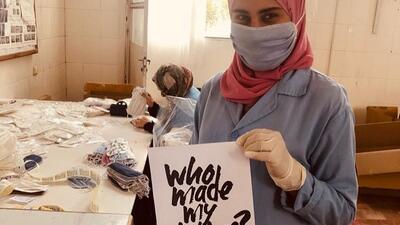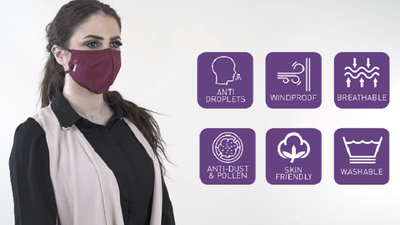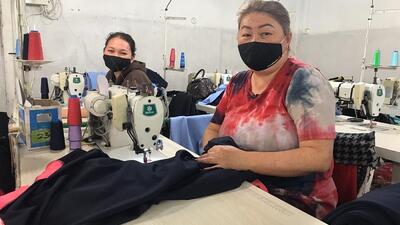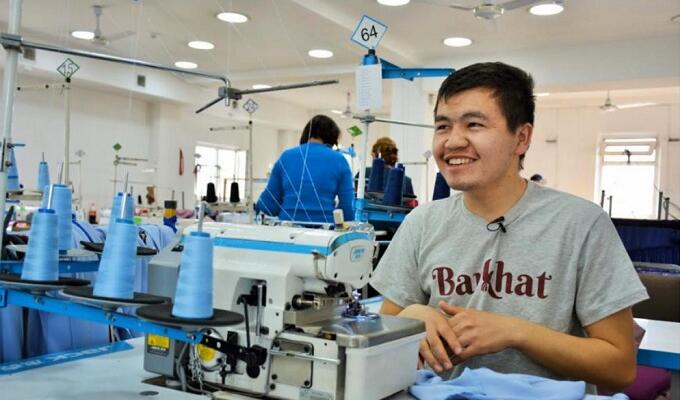
Kyrgyzstan’s textile and clothing sector battles disability discrimination (en)
When Rustam Mamadali began work at a garment-manufacturing factory five years ago, he got more than just a job. The Batken, Kyrgyzstan native was born with a hearing and speech impairment and working in the textile and clothing sector in Kyrgyzstan gave him the opportunity to fulfil his potential.
His employer, Barkhat – a beneficiary of the ITC’s GTEX programme in Kyrgyzstan – is a great example of the positive benefits of inclusive and diverse hiring. The company employs many people with disabilities to work as machine operators in its sewing departments.
Nurjan Kunasova, director of Barkhat, says that people with disabilities in Kyrgyzstan often face employment discrimination – with negative consequences for the economy.
‘The clothing industry needs workers and hiring more disabled people represents a good option for both the employee and the company,’ said Kunasova.
In Kyrgyzstan, more than 176,000 people live with a disability, 40% of whom are of working age. It is estimated that 80–85% of them are unemployed and face discrimination in the labour market.
Rustam broke barriers as the first person with a disability to join Barkhat’s workforce. But two more people with speech and hearing disabilities have since joined the company.
The positive experience of people with disabilities working for the textile and clothing sector became a video project developed between GTEX and the Kyrgyzstan government. The success stories were shared social media and local TV channels.
As part of its work in Kyrgyzstan, GTEX has organized a series of training courses on social responsibility (ISO 26000), environmental management (ISO 14001) and quality management (ISO 9001) among others.
Altogether, 54 companies, including 41 women-owned enterprises, have participated in 21 different training courses.




